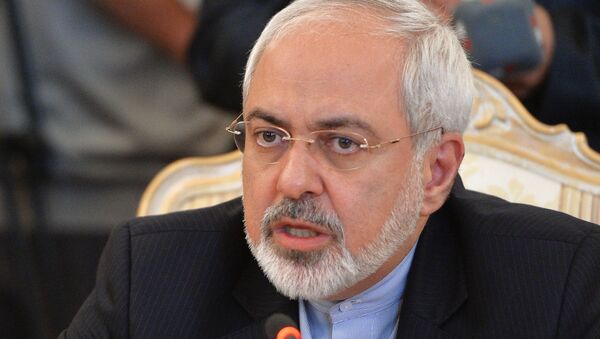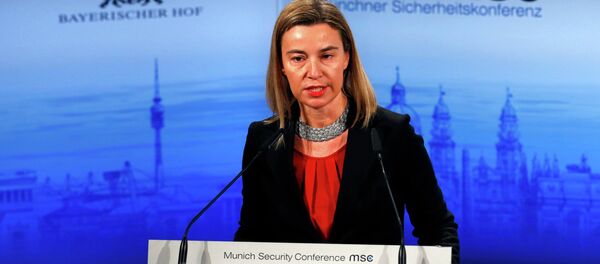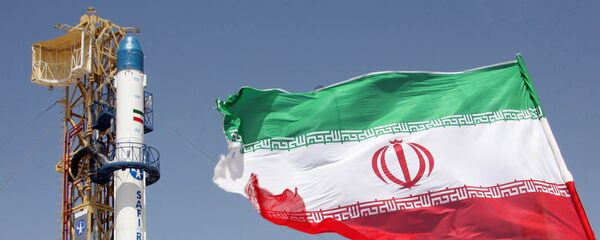MOSCOW (Sputnik) — Iranian Foreign Minister Mohammad Zarif rejected a media report claiming he had warned that failure in talks on Tehran's nuclear program would put President Hassan Rouhani's administration at risk, MEHR News Agency reported Sunday.
"No internal issue has been introduced at any of the meetings and the media claims over the content of my talks with Kerry are an outright lie," Zarif was quoted as saying by the news agency.
According to an exclusive Reuters report, Zarif warned that failure to agree a nuclear deal would "herald the political demise" of Rouhani, giving hardliners as the Iran's Revolutionary Guard Corps an upperhand.
However, an unnamed senior US official was also quoted as saying by Reuters that the rumors on Zarif issuing a warning during the meeting were "untrue."
Meanwhile, Zarif and his counterpart held a second meeting on Sunday. Later in the day, the Iranian foreign minister will hold a press conference, and participate in the Questions and Answers session.
Tehran and the P5+1 group of international mediators should define mutual goals in order to reach an agreement on Iranian nuclear program, Iranian Foreign Minister Mohammad Javad Zarif said Sunday.
"Unless we define mutual goals, shared objectives, common objectives, we will not be able to resolve this [the nuclear crisis]," Zarif said at the opening debate of the Munich Security Conference's third day.
The Iranian foreign minister also cited the lifting of sanctions imposed on Iran as another prerequisite of a deal.
High level of mistrust between Tehran and the West still remains, and every action Iranian government takes is under serious scrutiny, Iranian Foreign Minister Javad Zarif said Sunday.
"There is a huge deal of mistrust in Iran vis-à-vis the West in general and the United States in particular. So every action that we take, every step is under very serious scrutiny by our public, because it has mistrust," Zarif said during his address to the Munich Security Conference.
Iran's nuclear program has long been a matter of concern for the international community, with P5+1 states, comprising Russia, the United States, the United Kingdom, France, China and Germany, aiming to ensure the peaceful nature of the program. In November 2013, Iran and the P5+1 group only managed to reach an interim agreement.
At November 2014 talks in Vienna, the negotiating parties again failed to work out a comprehensive deal, agreeing instead to extend the deadline for reaching an agreement to July 2015.



